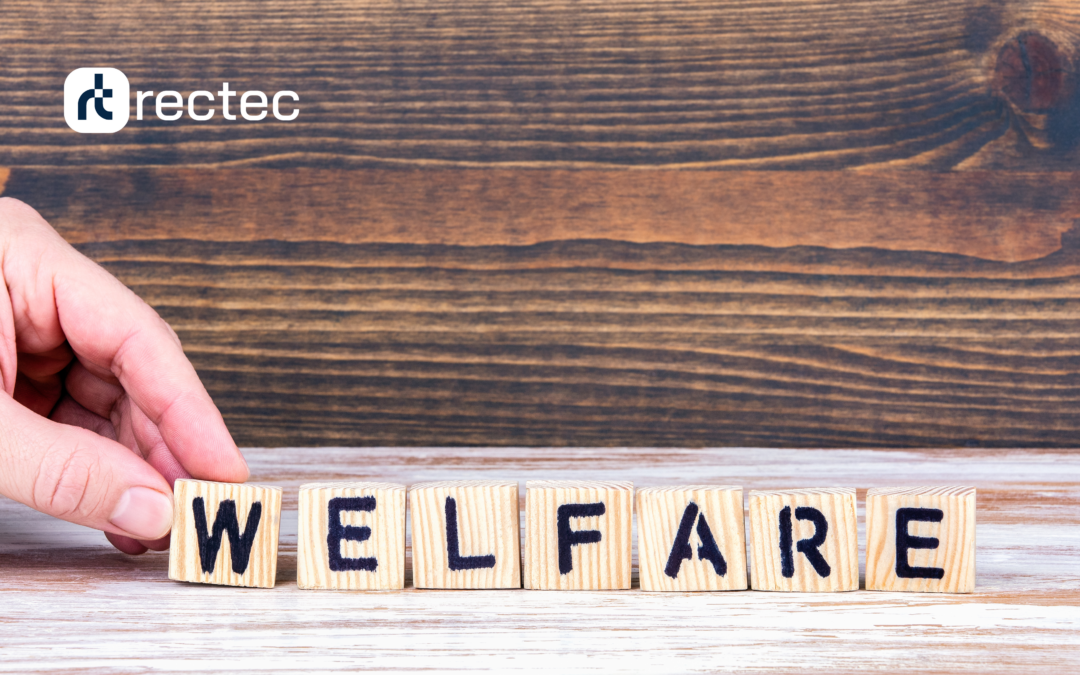Research from Linkedin indicates “75% of bosses globally are concerned that the current economic slowdown means they will have to roll back employee wellbeing initiatives”.
We despair at the fact that during a downturn, one of the first things to be discarded is employee welfare. We urge companies to resist this, and build new cultures of welfare appreciation that mean you’ll continue to support talent even as things get harder and money becomes stretched.
We understand that “perks” are a luxury, one offered when money is no pressing matter. We know that companies leverage perks to recruit staff and when the sun shines enterprises try to outdo each other in building the most attractive compensation scheme possible.
We also understand that workplace benefits should rightly be questioned when revenue hits a snag. A recession will have every business owner looking at outlay and spending, and items on the outgoings spreadsheet that don’t generate revenue are at risk.
But herein lies the rub. Many companies have inherited a set way of thinking about workplace welfare that seems to package it as a run-of-the-mill perk. This needs to change.
To bracket well-being expenditure as akin to workplace benefit is to lose sight of why well-being is now one of the most important elements within a workplace, and how it’s integral to recruitment and retention of talent.
A company is only as healthy as the health of its people, and no recruiter (or savvy business owner) worth their salt would tell you that reducing welfare is good for business.
Our solution?
Change your culture of welfare to be user-dominated and hardcoded into your company culture. In essence, Communicate, Deliberate, and Designate your welfare package, and you’ll see results no matter your budget.
Communication.
Go modern or go home – utilise the tech available to you to improve communication.
Recruitment tech and workplace tech play a huge part in ensuring your teams know what’s expected of them, and how their labour is measured to ensure benefits, bonuses and commissions are achievable and fair.
This is no different for welfare. But where perks are earned, welfare should be offered as standard. Welfare strategies to mitigate burnout, abuse, bullying or loss of productivity should be front and centre of any workplace comms.
Naturally, the more your workforce goes remote or hybrid, the more you need to rely on your tech stack to do some of the communications heavy lifting. From in-work comms channels to hybrid workforce performance management, recruitment tech is now the foundation of keeping everyone connected and everyone aligned.
So within your new, recession-proof welfare culture everyone needs to have a clear line of sight to welfare outreach and options.
There is no such thing as over-communicating how you reward and recognise your workers’ labour. The same should stand for welfare too.
Deliberation.
This means involving your teams in setting out your welfare stall.
Deliberation means you take as much data as you can from your people and your external network to build a well-being and compensatory structure that’s relevant, useful and attractive to the people using it.
This means being honest with yourself and discarding previously well-established employee management systems in favour of helping your people in the current market, based on evidence and employee attachment to company meaning.
Again, one of the most effective ways of doing this is by utilising workplace technology to collate and measure everything from peer feedback to performance reviews, thereby providing a context-led, real-time store of actionable workplace data to make more targeted changes to welfare.
Hopefully, it’ll save you money too as you discard the things no one wants and focus on what will improve welfare at work.
Designation.
Designation requires business leaders and HR head to de-silo decision making, and enable a more empathy-led, company-wide approach to building a welfare and benefits structure that fits your people and your culture.
Part of the battle against poor workplace well-being is that employees feel overwhelmed with the pace of change, the cost of living rise and the impact of the pandemic. A major part of that is driven by a lack of employee agency.
If employees feel like they have no impact on the direction of their company, and if they feel like their labour is meaningless in regards to their industry, userbase or end-goal outcomes, morale drops and people lose connection to their work.
Well-being should always be a two-way street. You need employee buy-in. To get it, designate responsibility for impactful change to your company leaders and responsible stakeholders. Don’t hold your cards close to your chest – involve your people in setting out new rules, new support structures and new cultures of positive welfare and you’ll see complete buy-in.
Summary.
Well-being isn’t a metric to be “hit”, neither is it a goal or a target. It should never be treated like a perk or benefit.
Welfare at work is a fluid, constantly evolving set of protections that are integral to staff happiness, productivity and engagement. Don’t deny your people the chance to feel safe at work – you’ll reap the rewards, trust us!
If you haven’t seen our ATS and recruitment CRM comparison service yet, what are you waiting for?
Rectec Compare is totally free to use, and you can input your requirements in under 20 minutes to see what ATS or recruitment CRM best fits your needs.

